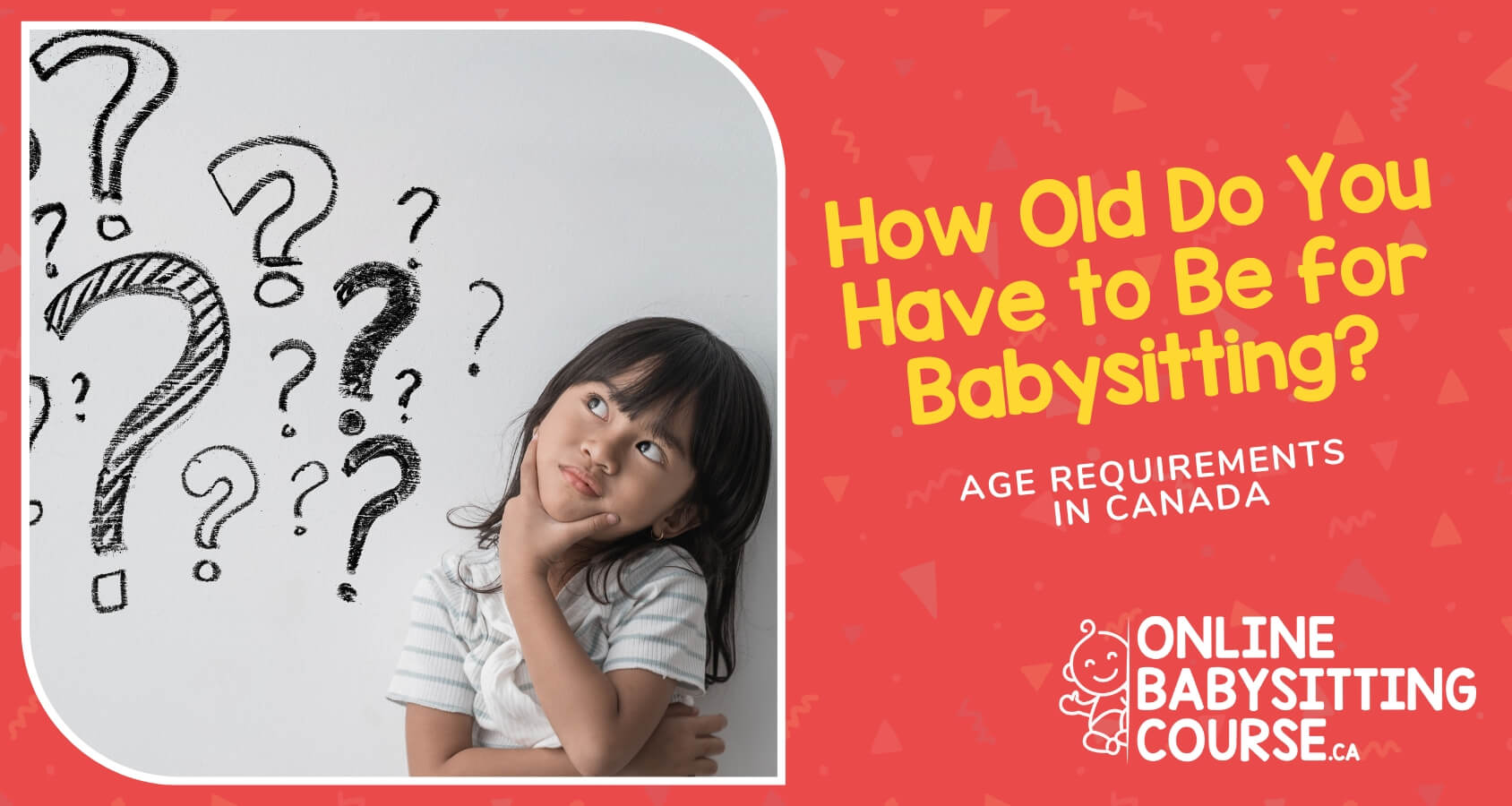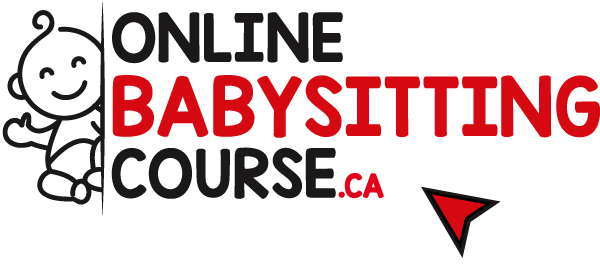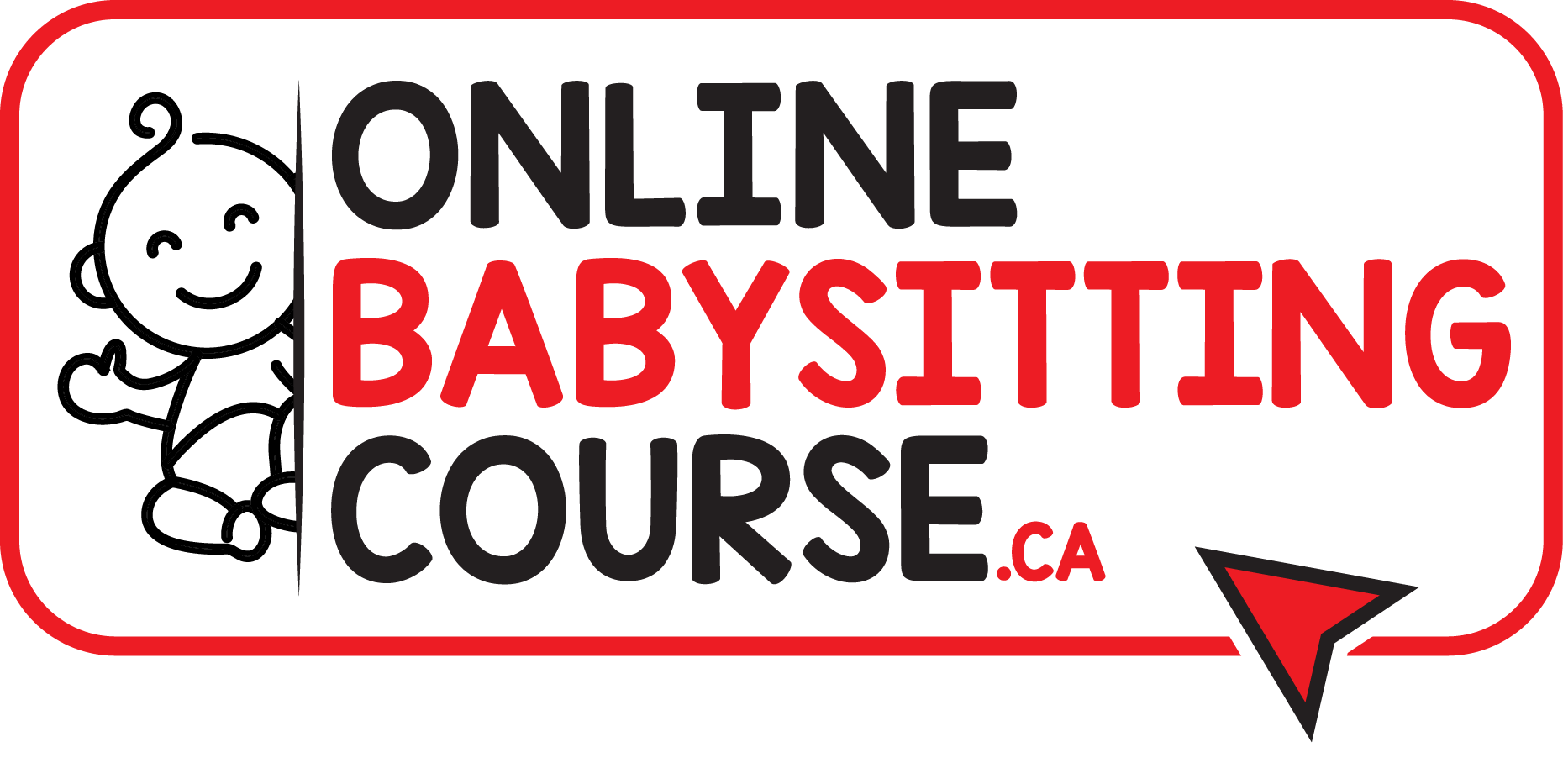
Introduction
Babysitting is a significant responsibility, and both parents and teenagers need to understand the legal requirements before diving into it. In Canada, the minimum age to babysit varies across provinces and territories, with each having its own regulations and recommendations to ensure the safety of children left in the care of someone else.
This guide provides a comprehensive breakdown of babysitting laws across Canada, recommended courses to boost a babysitter’s preparedness, and tips for assessing whether a teen or pre-teen is ready to take on the responsibility. We’ll also highlight important safety guidelines and common challenges that babysitters might face.
Provincial and Territorial Babysitting Age Requirements
Legal Babysitting Age in Canada
Each province and territory in Canada sets its own guidelines when it comes to the legal age for babysitting. These laws reflect local priorities for child safety and offer a framework for when it’s appropriate for pre-teens & teens to start babysitting. Generally, the age at which a child can start babysitting is determined by various factors including, but not limited to, the maturity level of the individual, the specific laws and guidelines set by each province or territory, and sometimes the duration and conditions under which the babysitting will occur. Ultimately, it is the parent’s responsibility to ensure they follow their provincial guidelines & recommendations.
Babysitting Age Laws in Ontario
In Ontario, there is no legal minimum age for babysitting, but most child welfare agencies recommend that children be at least 11 years old. In Ontario, the Child and Family Services Act suggests that children under the age of 16 years may not be left unsupervised when it comes to overnight babysitting or an entire weekend for example. Additionally, it’s highly recommended that new babysitters complete a babysitting course to gain confidence and skills. During the babysitting course participants will learn that taking care of young children is a big responsibility and you must be prepared. The average child is in grade 6 when they start to babysit. Ménard’s Babysitting Course is offered starting at age 10 so the participants can practice being a mother’s helper for a year and then when they feel more comfortable and confident, they can gradually babysit on their own by the time they are 11 or 12 years of age. Some babysitters are not ready until later. This depends on the teen or pre-teen’s maturity, whether or not they have experience with being around younger children and whether they have the ability to handle emergencies.
Babysitting Age Laws in British Columbia
In British Columbia, the minimum recommended age for babysitting is 12 years old, especially if the child will be left unsupervised for extended periods. Children under the age of 12 are typically not allowed to be left alone or care for younger children.
Babysitting Age Laws in Alberta
Alberta has a minimum recommended age of 12 years old for babysitters. Many parents in the province opt to have their teens complete a babysitting course before taking on childcare responsibilities. Alberta’s regulations stress the importance of assessing both age and maturity when deciding if a teen is ready to babysit.
Babysitting Age Laws in Manitoba
In Manitoba, you must be 12 years old to stay home alone or babysit. As in all provinces and territories, age alone does not determine if a pre-teen or teen is ready to babysit. The maturity and whether the babysitter can follow instructions and handle emergencies are also taken under consideration.
Babysitting Age Laws in Saskatchewan
In Saskatchewan, the minimum recommended age for babysitting is 12 years old as in most provinces. As in other provinces, age alone does not determine if a pre-teen or teen is ready to babysit.
Babysitting Age Laws in Quebec
In Quebec, it’s recommended that children be at least 12 years old before they babysit. Babysitters must be prepared to handle emergencies and show maturity in caring for younger children.
Babysitting in the Maritime Provinces (Nova Scotia, New Brunswick, PEI)
These provinces generally follow similar guidelines, recommending a minimum babysitting age of 12 years old. However, local authorities may provide more specific guidance for short-term or long-term babysitting arrangements. In New Brunswick, you must be 12 years old to stay home alone or babysit.
Babysitting in Newfoundland and Labrador
There is no legal age to babysit. According to the Department of Children, Seniors and Social Development It is the parents responsibility to make safe decisions for their children including who looks after them. It suggests taking a babysitting course starting at age 11, however it is still up to the parents to decide.
Babysitting in Northern Canada (Yukon, Nunavut, NWT)
In the northern territories, there are no formal laws about babysitting age, but community recommendations suggest that 12 years old is the appropriate minimum age for babysitting. In smaller, close-knit communities, babysitters are often trained early to handle emergencies and take responsibility for younger children.
Key Points:
- Each province and territory has unique age recommendations.
- Generally, 11 to 12 years old is considered the minimum age for babysitting across Canada.
- Maturity, rather than age alone, is often a deciding factor in whether a teen can babysit responsibly.
- Ultimately, for anyone looking to hire a babysitter or allow their child to babysit in Canada, it is the parent’s responsibility to ensure they are following the latest guidelines & recommendations in their own province.
FAQ for Age Requirements:
Q: What’s the youngest age for babysitting in Ontario?
A: Most recommendations suggest 11 years old, but completing a babysitting course is advised.
Q: Can a 10-year-old babysit their siblings in Alberta?
A: It’s generally not recommended for children under 12 years old to babysit, even for siblings.
Q: Are there penalties for hiring an underage babysitter in Quebec?
A: Ultimately, parents are always responsible and may face legal consequences if an unsupervised child is injured.
Babysitting Certification and Safety Guidelines
Babysitting Courses and Certifications in Canada
To prepare teenagers for the responsibilities of babysitting, many parents and caregivers opt for certification courses. These programs teach first aid, child development, and emergency handling, equipping teens with the necessary skills to ensure the safety of the children they care for.
Importance of Babysitting Certification for Teenagers
Although not mandatory, babysitting certification is highly recommended for pre-teens & teens, particularly those aged 10-15. Certification programs not only teach essential safety skills but also provide an edge when seeking babysitting jobs. Certified babysitters are often more trusted by parents.
Menard’s Online Babysitting Course
Menard’s Online Babysitting Course is one of the most recognized programs across the country. With thousands of students trained, the course is designed for students aged 10 to 15, to first start off as a mother’s helper and start babysitting younger siblings. Then, they will be ready to babysit for other families.
The course covers topics such as:
- Becoming a Mother’s Helper
- Babysitting Siblings
- The Babysitter’s and Parent’s Responsibilities
- How to find the best babysitting jobs
- Having a successful interview
- Caring for and keeping children safe
- How to get along with children
- Playtime & Mealtime
- Emergency Situations
- Introduction to CPR & Choking for the child and baby
- and much more…
Babysitting Safety Tips for Parents and Teens
- Emergency Contact Information: Ensure that babysitters have a list of emergency contacts, including parents, neighbors, and local emergency services. Download this information sheet to fill out everytime you babysit for a new family.
- First Aid Kit: Babysitters should know where the first aid kit is located and how to use it.
- Safe Environment: Parents should assess the home for potential hazards (sharp objects, electrical hazards, medications, etc.) and ensure the babysitter knows how to minimize risks.
Key Points:
- Certification increases trustworthiness and skill level.
- Safety tips should always be reviewed before leaving a child in someone’s care.
FAQ for Certification and Safety:
Q: At what age can you take the online babysitting course?
A: Students aged 10 to 15 can enroll.
Q: Are babysitting certificates required in every province?
A: No, certification is not required but is highly recommended.
Assessing Pre-Teens & Teen’s Readiness for Babysitting
Maturity vs. Legal Age: Is Your Pre-Teen or Teen Ready to Babysit?
While legal age requirements provide a general guideline, a teen’s maturity is a more critical factor in determining whether they’re ready to babysit. Maturity involves emotional readiness, responsibility, and the ability to remain calm in emergencies.
Understanding the Emotional and Mental Maturity of Teens
Teens who are emotionally mature can handle stressful situations, make informed decisions, and communicate effectively with both children and parents. Babysitting involves more than just supervising; it requires quick thinking, empathy, and patience.
Evaluating Responsibility: Key Traits to Look For
Parents should assess their pre-teen or teen’s:
- Decision-making skills: Can they make the right choices when left alone with younger children?
- Communication: Can they communicate clearly with both parents and children?
- Crisis management: Do they remain calm under pressure?
Parent Checklist: Is Your Child Ready for Babysitting?
Before allowing a pre-teen or teen to babysit, parents should ensure that they can:
- Stay calm in emergencies.
- Follow instructions and rules.
- Communicate with younger children in a nurturing way.
- Handle small tasks like preparing meals and putting children to bed.
Here are some tips for preparing your child to babysit:
Key Points:
- Start with small responsibilities
- Give them the opportunity to start off by being a mother’s helper
- Teach them basic safety and childcare skills
- Practice good communication skills
- Provide support
- Get them to take a babysitting course
- Parents should carefully evaluate their pre-teen or teen’s readiness before allowing them to babysit.
FAQ for Maturity and Readiness:
Q: How do I know if my teenager is ready to babysit?
A: Look for signs of emotional maturity, responsibility, and calmness under pressure.
Q: Should I start by having my teen babysit siblings first?
A: Yes, starting with family members is a good way to assess their readiness.
Babysitting Responsibilities and Common Challenges
Responsibilities of a Teens & Pre-Teens Babysitter
Babysitting isn’t just about having fun with children. It involves keeping them safe, following instructions, and sometimes managing difficult or unexpected situations.
General Duties and Expectations
Babysitters are responsible for:
- Safety: Ensuring the child is safe at all times.
- Routine Care: Feeding, diapering, and putting the child to bed.
- Engagement: Keeping children entertained with games or activities.
Handling Emergencies and Difficult Situations
Babysitters may face challenges like:
- A sick child: Knowing when to contact parents or seek medical attention.
- Accidents: Administering first aid in case of minor injuries.
- Behavioral issues: Managing tantrums or difficult behavior calmly.
Key Points:
- Babysitting requires responsibility, patience, and quick decision-making skills.
- Understanding basic first aid and emergency protocols is crucial.
FAQ for Responsibilities:
Q: What should a babysitter do in case of an emergency?
A: Babysitters should first assess the situation, administer first aid if necessary, and contact parents or emergency services immediately.
Q: What tasks are too difficult for young babysitters to handle?
A: Complex medical situations, children with special needs or caring for multiple children without assistance may be too challenging for younger babysitters.
Conclusion
In Canada, the legal age for babysitting varies by province and territory, but 11 to 12 years old is typically considered the minimum age. However, a child’s readiness for babysitting goes beyond age, encompassing maturity, responsibility, and preparedness. Ensuring that your pre-teen or teen is well-equipped to babysit with proper training, will play a significant role in preparing young individuals for babysitting responsibilities and will give parents, pre-teens and teens the confidence they need, providing a solid foundation for responsible babysitting. Always check with local laws and regulations to ensure compliance with regional guidelines.

